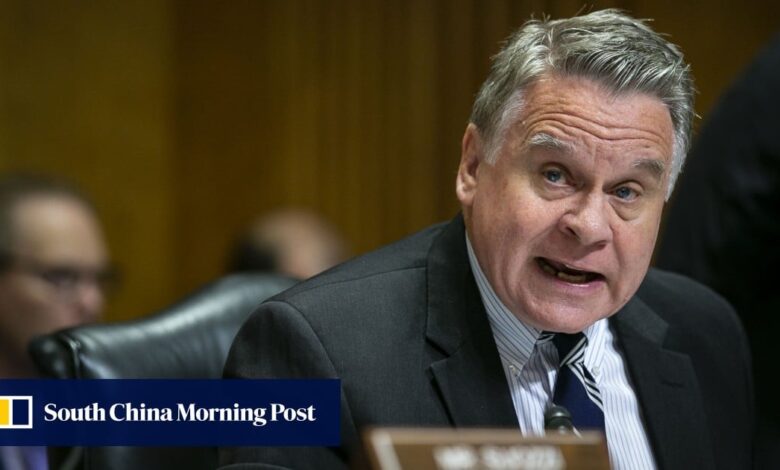US must improve seafood supply chain monitoring to spot China’s human rights violations, panel told

[ad_1]

The comments came at a hearing titled “From Bait To Plate: How Forced Labour in China Taints America’s Seafood Supply Chain” and hosted by the Congressional-Executive Commission on China, a group of lawmakers and senior administration officials that advises Congress and the executive branch on human rights and the rule of law in China.
The hearing arose after a four-year investigation by journalist Ian Urbina found that 357 of the 751 ships in the Chinese squid fleet his team studied were tied to human rights and environmental violations.
Urbina, who is also the director and founder of The Outlaw Ocean Project, a non-profit journalism organisation, in his report said the seafood industry had so far largely escaped notice. He believed this was mainly because major processing hubs in China operated outside Xinjiang.
“Seafood is … harder to track than many other products,” Urbina testified on Tuesday. “Between bait and plate, there are an inordinate number of handoffs of this product.”
Xinjiang defies Western curbs as foreign trade hits record high, surges by 47%
Xinjiang defies Western curbs as foreign trade hits record high, surges by 47%
On Tuesday, the commission’s chairs – Republican congressman Chris Smith of New Jersey and Democratic senator Jeff Merkley of Oregon – sent a letter to US Secretary of Homeland Security Alejandro Mayorkas urging his department to issue an order to detain all shipments from Liaoning and Shandong provinces and to put companies employing Uygur labour on the UFLPA’s “entity list”.
“From fish sticks to calamari, these products infiltrate the supply chains of major restaurants, wholesalers, and even find their way into the meals served in American schools and military bases,” said Smith.
The US is the world’s second largest-seafood importer after China, and China is a global leader in seafood processing.
Just under 40 per cent of US seafood imports are initially caught in American waters and exported for cleaning, cutting and packaging in Asia and China, according to one estimate.
Speaking before the panel on Tuesday, Sally Yozell, Director of the Environmental Security Program at the Stimson Centre, a Washington-based think tank, called on the National Oceanic and Atmospheric Administration to expand and redefine its “seafood import monitoring programme”.
NOAA needed to add labour and human rights abuses to the definition of illegal, unreported and unregulated fishing, she said.
Robert K. Stumberg, a Georgetown Law professor, called for a “comprehensive strategy for transparency”.
While the US government espouses a “Buy America” policy, companies serving most of the US did not have to abide by it, Stumberg testified, also noting that exceptions to the policy existed that could allow tainted seafood to enter government procurement processes.
US demands release of Uygur scholar reportedly given life sentence by China
US demands release of Uygur scholar reportedly given life sentence by China
China Overseas Fisheries Association (Cofa), an industry trade group, said last week in a statement that Urbina’s report was “fabricated” and that it had found “no evidence of forced labour” after an investigation.
“Workers from all ethnic groups work in the same conditions, enjoy equal rights and equal pay for equal work,” the group said.
In response to Cofa, Urbina on Tuesday stated: “Whether these workers are paid or they tell auditors or the state media that they are happy to have the job is not relevant”.
“Under US law, any use of Xinjiang workers is deemed illegal because it occurs in the context of a larger government run and coercive programme.”
King prawn, lobsters on offer as rural Xinjiang develops seawater aquafarming
King prawn, lobsters on offer as rural Xinjiang develops seawater aquafarming
Several American companies, including Lund’s Fisheries, High Liner and Pacific American Fishing Co, have already ended business with plants identified in Urbina’s report.
Lund’s Fisheries and High Liner both noted in responses to the investigation that they did not find evidence of forced labour in their audits but were taking action out of caution.
Scarlatoiu urged further investigation into whether North Korean workers officially dispatched to China processed seafood exported from the mainland to the US.
[ad_2]
Source link





